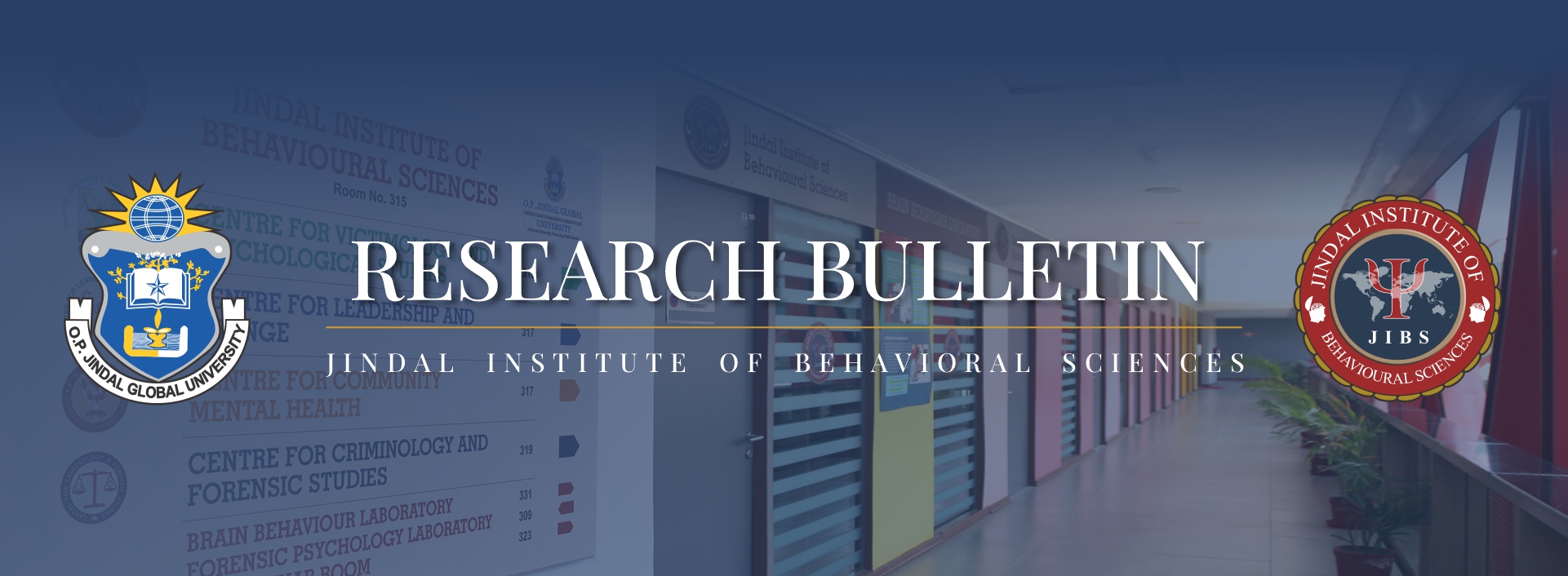Research Bulletin

Vol.3 Issue 5 | May 2024
The Jindal Institute of Behavioural Sciences (JIBS) research bulletin presents an overview of recent research published by the faculty and research scholars at JIBS organised under different themes.
Dr. Neha Khetrapal

International and national heritagization of religion in Asia.
This paper asks the following question: are international efforts (by nations such as India, China, and Japan) toward including intangible heritage in international policies different from how heritage is deployed and constructed nationally? The paper develops a new theoretical framework that underscores the heritagization of religion, thereby deploying a niche agenda that explains different functions of the heritagization process. On a national level, heritagization helps in the reconstruction of religious values and practices. On an international level, it leads to nation-building by increasing the cultural distinctiveness of a country. Heritagization of religion within a country may accelerate communal tension, particularly in countries that have a “rich heterogeneous past,” whereas heritagization could be viewed as soft power within the international sphere. The inclusion of intangible heritage in international policies is more promising as it both enhances the meaning of a shared heterogeneous past and redefines a nation’s international position. Thus, it is plausible to argue that non-Western countries may raise the bar for heritagization giving way to a novel form of heritagization competition as a means of not only advancing diplomatic agendas but also unifying people within borders. Read More…
Dr. Namita Ruparel

The association between Western components of psychotherapy and psychotherapy help-seeking attitudes among Asian Indians: A practice innovation.
Stemming from the context of a limited understanding around why people in India show receptivity to psychotherapy, this study aims to capture some of the Western cultural components underlying psychotherapy to better predict positive attitudes toward seeking psychotherapy in India. 312 individuals from India completed six measures of correlative signifiers for the underlying Western components of psychotherapy as generated from the Frank and Frank common factors model: Asian values, European American values, ethnic identity, collective self-esteem, Westernization, and cultural mistrust. Linear regression was used to test six theoretical hypotheses about psychotherapy help-seeking attitudes. Results indicated that Asian values, collective self-esteem, and cultural mistrust are negatively correlated with help-seeking attitudes, and that European American values and Westernization are positively correlated with help-seeking attitudes. Ethnic identity was not significantly associated with attitude toward psychotherapy help-seeking. The best multiple regression equation for predicting positive attitudes included lower (non-Western) collective self-esteem, higher Westernization, and lower cultural mistrust. Findings from this study indicate that the correspondence between a client’s culture and the elements of Western culture underlying psychotherapy shape help-seeking attitudes and acceptance of psychotherapy as a legitimate intervention. Read More…
Faculty Coordinators: Ms. Bhavya Tandon & Ms. Samreen Chhabra
